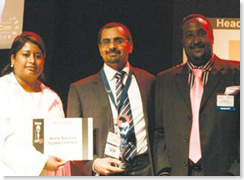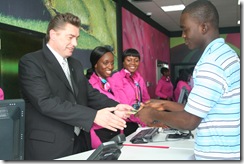Beleaguered telecoms vendor Nortel continues to fight for its survival, and is currently in the process of reviewing its stock market listing on the New York Stock Exchange (NYSE), given its depressed stock price. 
The NYSE requires stocks to generally trade above US$1.00, and Nortel’s stock price has failed to do this for more than 30 consecutive days. The vendor’s current NYSE stock price is US$0.31
In an email to Nortel staff seen by Comm., Ronald Alepian, Nortel’s vice president of corporate communications confirmed late last week that on December 10 the vendor had received notice from the NYSE that Nortel’s stock had fallen below the continued listing standards.
“In other words, the average closing price has been under US$1.00 for 30 consecutive trading days and we need to either remedy this or face the possibility of being delisted,” Alepian explained. “This is a technical trigger, and is not associated to any other news stories…Legal and finance teams are reviewing options, which could include a stock consolidation, similar to what we did in 2006. No decisions have been made and the NYSE does give us six months to work this through – we will take our time and do what is right,” he added.
Nortel stated that it would notify the NYSE within the required ten business day period that it intends to cure the deficiency. If the average closing price does not sufficiently improve, Nortel may consider presenting a proposal to its shareholders for a consolidation of its outstanding common shares at its annual meeting planned for spring 2009.
Last week Comm. reported how in the quarter ending September 30, Nortel endured its largest quarterly loss in seven years amounting to US$3.413 billion, from a loss of US$113 million in the previous quarter and a profit of US$27 million a year ago.
At the time of going to press on December 17, Nortel’s share price on the NYSE stood at US$0.31.
Alepian attempted to end his correspondence to rattled Nortel staff on a positive note. “I’m not blind to the challenges we are facing and the obstacles to growth, but I am also conscious of people’s ability to pool their resources, set their targets on clear goals and reach them. We’ve seen it time and time again across Nortel.”








